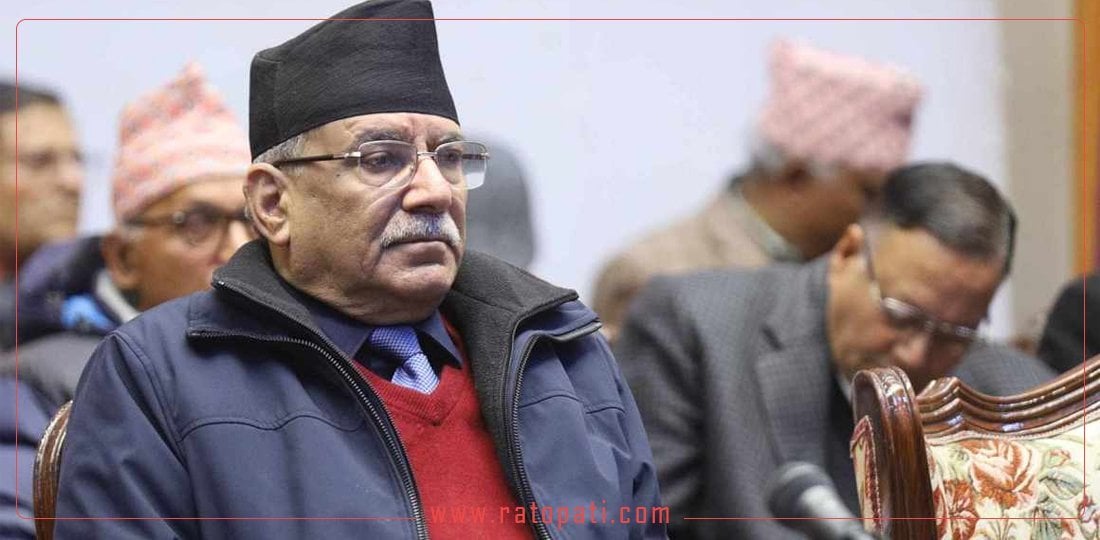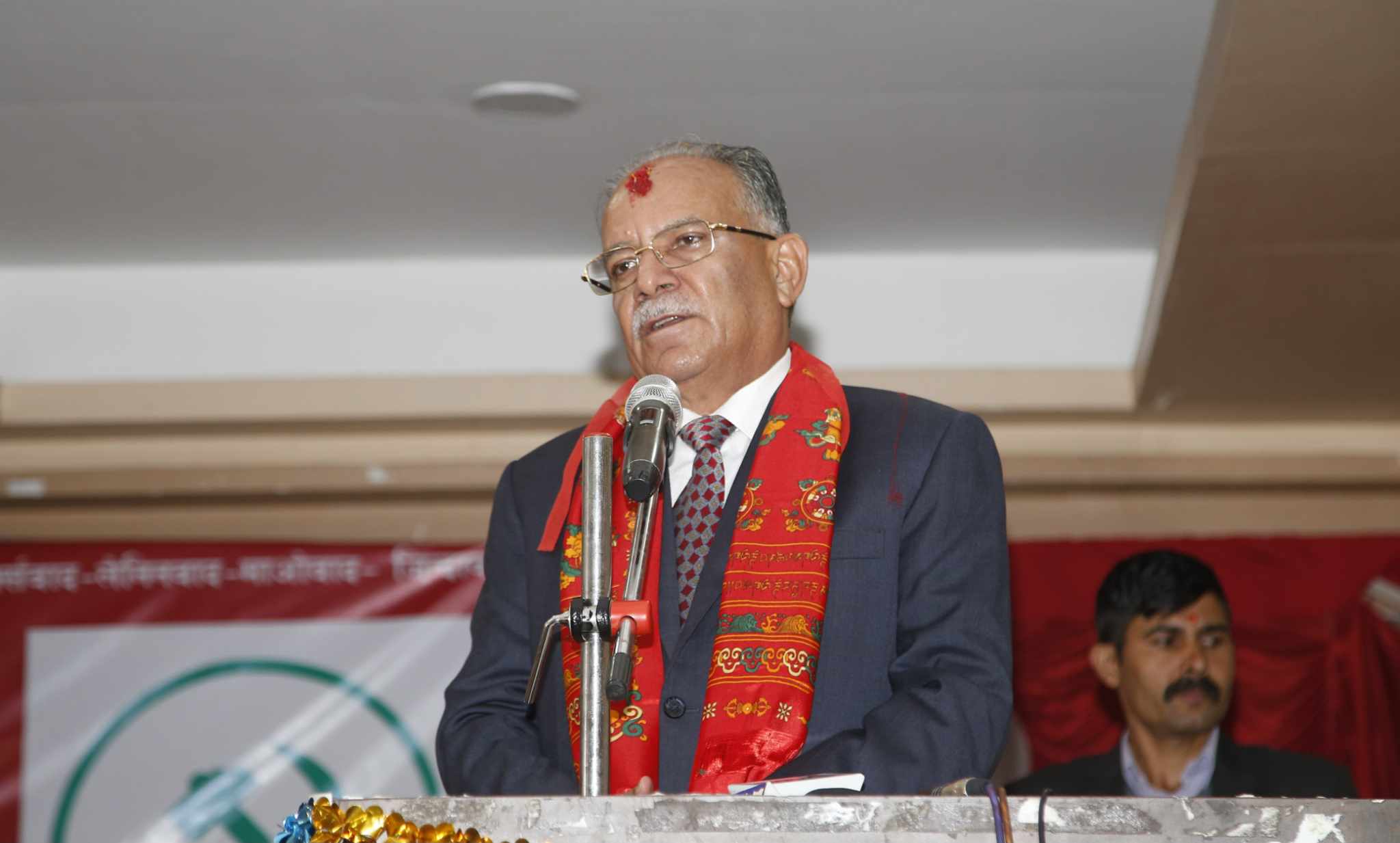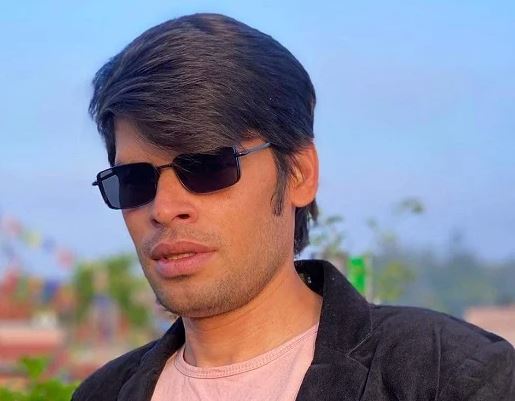Prachanda flips script: Contradicts himself, hints at returning to power

Kathmandu, November 19 — Chairperson of the CPN (Maoist Centre), Pushpa Kamal Dahal ‘Prachanda,’ made a statement last Saturday that contradicted his earlier commitments. Previously, Prachanda had asserted that he would not return to power until 2027. However, while speaking at a program organized by the Maoist Centre Kathmandu-Kavre Contact Forum, he hinted at returning to power, contradicting his earlier position.
Signals of a Return to Power
In his speech, Prachanda dismissed his prior commitments, expressing confidence that a government formed after overturning the Congress-UML alliance would be led by the Maoist Centre. Referring to the party’s 32 seats in parliament, he again described the number as "magical."
“I had previously said that the number 32 was a magical number. That statement might have stirred others, but I stand by it. Even now, the number is still magical because it has secured us the role of leader of the main opposition,” Prachanda stated.
He emphasized that his party would lead any government formed by reversing the current coalition. “There is nothing to be worried about. The next government will be ours,” he added.
Prachanda’s shifting stance
On November 13, Prachanda participated in a conclave organized by Kantipur Media Group titled ‘Prachandapath: Streets or State?’ During the event, he claimed that his party was not working to destabilize the current coalition. “There is a narrative being created that we are working to dismantle this coalition. Let me clarify today—we are not in favor of breaking this alliance,” he stated.
Expressing concerns about the coalition’s stability, he remarked, “If this coalition breaks, the country might face further crises. Therefore, we are focusing on the people, not on rushing into forming another government. Please, carry on until 2027; we give you our blessings.”
Past vows
In the past, Prachanda had expressed confidence in the stability of his government. On June 22, while addressing the Tamang National Liberation Front, he referred to the party’s 32 seats as a “magical number” that made it difficult to remove his party from government. He had stated, “If conditions are favorable, we will stay in government for the full term. Rest assured, there is no need to worry about our small numbers—we have the magical number 32.”
However, within weeks, his government collapsed after Sher Bahadur Deuba and KP Sharma Oli reached a seven-point agreement on July 1. This led to Prachanda’s ousting from power. On July 12, while seeking a vote of confidence in the House of Representatives, he expressed frustration with the coalition and indicated he would not immediately seek a return to power.
Prachanda’s criticism of the current government
On November 9, Prachanda addressed an opposition rally in Kathmandu, criticizing the current government for allegedly protecting corrupt officials, brokers, and intermediaries. He argued that the Maoist Centre had taken to the streets not to overthrow the government but to hold it accountable.
Similarly, on September 26, speaking at the 23rd convention of the All Nepal National Free Students’ Union (Revolutionary) in Kirtipur, Prachanda hinted at the instability of the Oli-led government, stating that his party must prepare for future actions if the government collapses.

Internal reactions
Prachanda’s remarks about returning to power have raised concerns within the Maoist Centre. Leaders fear that the growing enthusiasm for the party in opposition might fade if the party returns to power prematurely. Vice-Chairperson Agni Sapkota stated, “I am not fully aware of the context of Prachanda’s remarks. I will only respond after understanding the situation. These issues will likely be discussed in the party’s meeting.”
Secretary Devendra Poudel confirmed that the politburo meeting scheduled for November 19, will address Prachanda’s statements, among other issues such as constitutional amendments and local elections.
Historical context
Prachanda has been closely associated with power dynamics in Nepal since the Maoist insurgency. After the Maoist party shrank to third place in the 2013 Constituent Assembly elections, Prachanda managed to become prime minister twice by leveraging alliances with the Congress and UML. Despite his party’s declining size in subsequent elections, Prachanda continued to play a significant role in Nepali politics.
In 2017, the Maoist Centre allied with the UML to form the Communist Party of Nepal (CPN), which gained a historic electoral mandate. However, internal conflicts between Prachanda and KP Sharma Oli led to the breakup of the NCP before its third anniversary.
After reviving the Maoist Centre, Prachanda managed to retain the party’s identity but failed to develop an effective organization or programs aligned with its vision of socialism with Nepali characteristics. In the 2022 general elections, the party secured 32 seats, maintaining its position as the third-largest party.
Critics within the party allege that Prachanda relied on alliances with larger parties instead of focusing on strengthening the party’s grassroots organization. They argue that Prachanda, who emerged as a revolutionary leader during the Maoist insurgency, has now shifted his focus to maintaining power rather than pursuing ideological goals.
Upcoming discussions
The Maoist Centre plans to hold a central committee meeting from December 17 to 22, to finalize its strategies, leadership, and organizational programs. This meeting is expected to address recent controversies and outline the party’s path forward.










Leave Comment